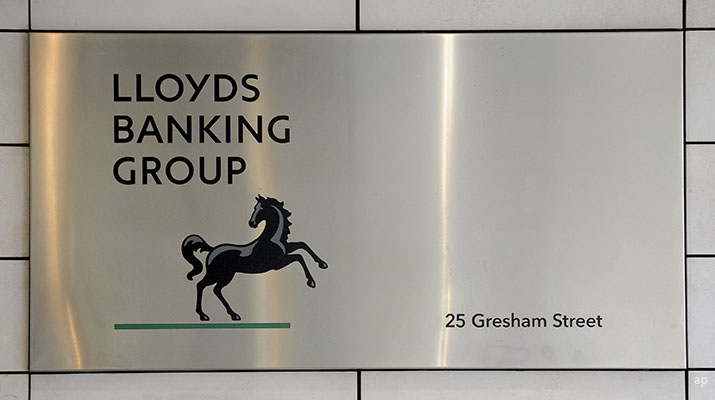
With European banks yielding on average 5.4%, much higher than their global peers and companies in other sectors, investors are rightly concerned that these dividends are not sustainable. Dividend traps – where investors are lured by tempting yields only to experience financial distress, dividend cuts, and share price declines – are a real risk.
Morningstar analysts have developed a quantitative ranking model that looks at the key indicators that a firm's dividend is sustainable. These include:
- A low or conservative dividend payout ratio
- High profitability and superior earnings growth
- Low leverage/borrowing
Lloyds Banking Group, Ireland’s KBC, Sweden’s Handelsbanken, and Switzerland’s UBS appear to offer the ideal balance between above-average dividend yields and dividends that are more secure than those of the peer group.
The European banks with the most sustainable looking yields share the following characteristics:
- They all have economic moats, ie. have sustainable competitive advantages
- Their yields are higher than the average European bank
- All trade in 4-star territory, which means they are undervalued
All of the banks that we view as good investments from a dividend perspective also offer decent upside to our fair value estimates. But while a high safety score means we believe that a bank's dividend has a greater degree of safety than the average bank, there is no guarantee that a dividend is ever absolutely secure.
We are mindful that banks by their very nature are cyclical businesses and that earnings will fluctuate. We would much rather see management cut dividends and follow a rational dividend policy where the dividend is tied to a portion of earnings than continue to pay out an unsustainable portion of earnings and threaten the bank's capital adequacy. For us, a true breach of dividend safety occurs when a bank completely discontinues its dividends or institutes a scrip dividend policy, which we view as a rights issue in disguise.
UK Banks, Ranked
Earnings have been depressed as the UK banking sector has been the subject of substantial fines and litigation costs in recent years. As the underlying issues - chiefly PPI - are on the brink of resolution, however, we expect significant earnings growth over the next three years.
We are mainly concerned about a severe economic shock such as a hard Brexit when considering dividend safety. In such a scenario, UK-centric banks would have to rely heavily on their capital reserves and and scrap dividend payments. But we view a hard Brexit as the least likely scenario for a UK withdrawal, given the severe impact on UK and European economies that it would bring. Excluding this grave worst-case scenario, we find UK dividends to be safe.
Lloyds (LLOY)
Lloyds scores particularly well on profitability and earnings per share growth. The bank ranks in the top quartile of profitability in our coverage, which is a direct result of its low-cost and market-leading deposit franchise. Although Lloyds had to suspend its share-buyback programme for 2019 because of higher-than-expected PPI claims in the third quarter, we don't expect repercussions for its ordinary dividend. Moreover, we anticipate the bank to resume extraordinary capital distributions to shareholders in 2020. The bank’s large capital buffers mean that it has ample headroom before it needs to cut its ordinary dividend.
Barclays (BARC)
Although Barclays scores reasonably well quantitatively on dividend safety overall, we bemoan the scrip dividend option (Barclays pays some investors shares in lieu of cash payments). While we can see the arguments for a scrip, we don't think they are particularly good ones. Often advertised as increasing flexibility for investors, we think it is rather intended to keep headline payout ratios and dividends per share figures elevated while indirectly recapitalising the balance sheet. Investors should be aware of the potentially dilutive effect of a scrip programme on earnings per share - there are more shares in issue so EPS usually falls in this scenario.
Royal Bank of Scotland (RBS)
Royal Bank of Scotland's dividend safety score and the general public's perception of RBS may seem contradictory at first; however, we believe this is due to an outdated view by the latter rather than an error in our calculation of the former. RBS has significantly transformed its balance sheet and its exposure since the detrimental decisions it took and the repercussions leading up to and during the great financial crisis in 2008. We are not surprised that RBS' ordinary dividend screens as safe, given that the government is the majority shareholder—which we believe is one reason for the high capitalisation of RBS—it has a currently overly prudent payout ratio, and it has a strong earnings outlook over the next three years as fines and provisions cease to distort its true profitability








.jpg)






















